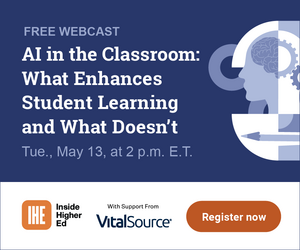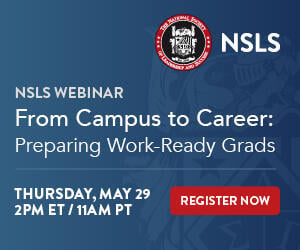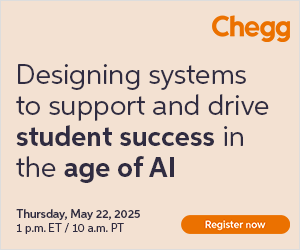AI in the Classroom: What Enhances Student Learning and What Doesn’t
Examine what’s known about how today's students are engaging with AI.

This discussion seeks to cut through the noise on artificial intelligence and higher education, to examine what’s known about how today's students are engaging with AI, and which kinds of tools and uses genuinely enhance learning—versus those that may undermine educational objectives.
Drawing on emerging research, case studies and other data, and anchored by an expert panel, this webcast will map the landscape of AI usage among students and explore critical distinctions between AI uses that promote deeper cognitive processing and those that potentially short-circuit essential learning processes.
The goal is to arrive at evidence-based insights that can help inform institutional AI policies and classroom practices that align technological innovation with substantive educational goals in this rapidly evolving digital landscape.
Additional resources:
- “Shaping the Future of Higher Education Through Technology, Flexibility and Well-Being” (2025 EDUCAUSE Students and Technology Report)
- The Opposite of Cheating: Teaching for Integrity in the Age of AI (Book co-written by panelist Tricia Bertram Gallant)
- “AI Tools in Society: Impacts on Cognitive Offloading and the Future of Critical Thinking” (Study by panelist Michael Gerlich)
- “Leading Through Disruption: Higher Education Executives Assess AI’s Impacts on Teaching and Learning” (AAC&U and Elon University’s Imagining the Digital Future Center Report)
- “Everyone is Cheating Their Way Through College” (New York Magazine Article - paywalled)
- “Addressing the Transactional Model of School” (Response by John Warner to the above NYM article, shared by webcast attendee)
- More Than Words: How to Think About Writing in the Age of AI (Book by John Warner, shared by webcast attendee)
- “2025 Student Guide to Artificial Intelligence” (Elon University’s Imagining the Digital Future Center and AAC&U Guide)


